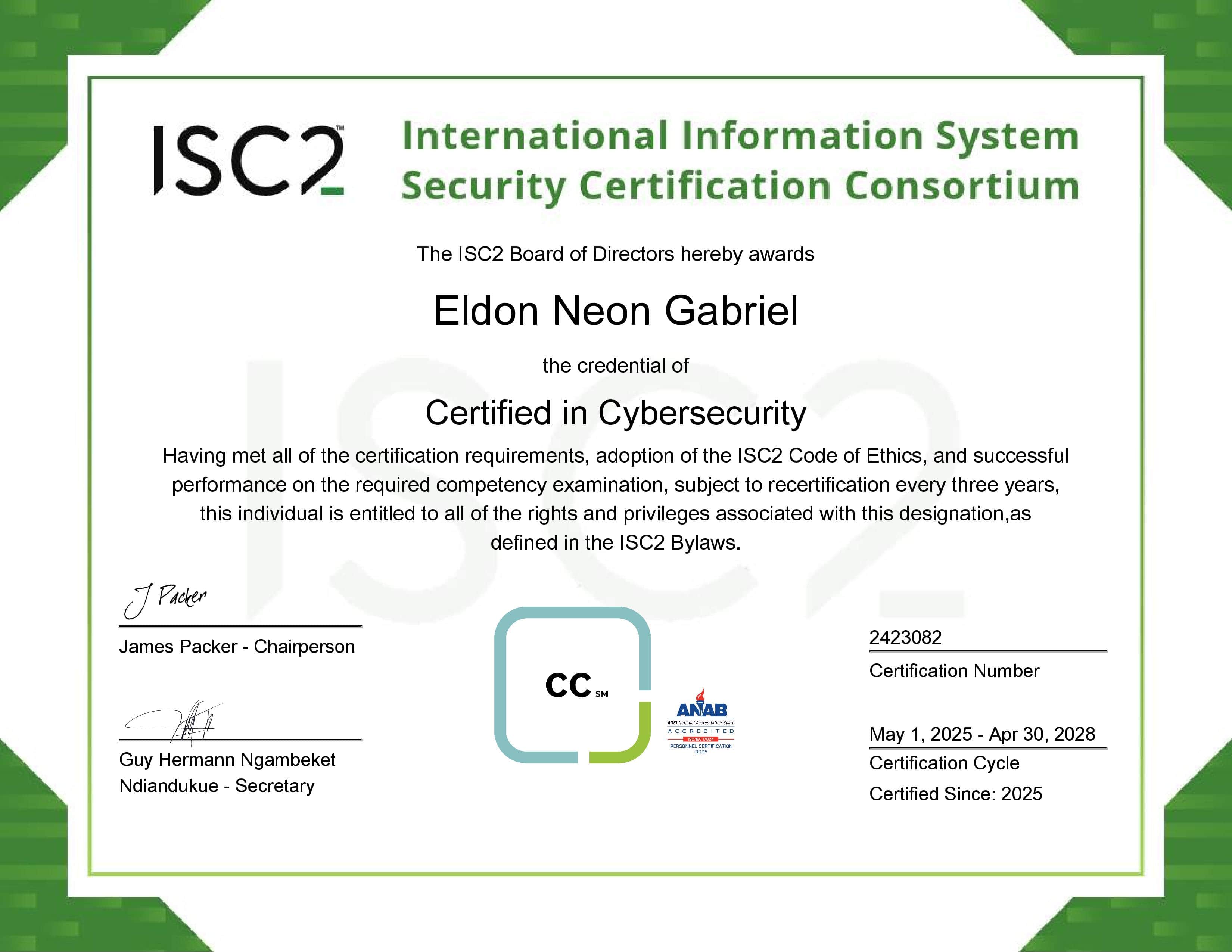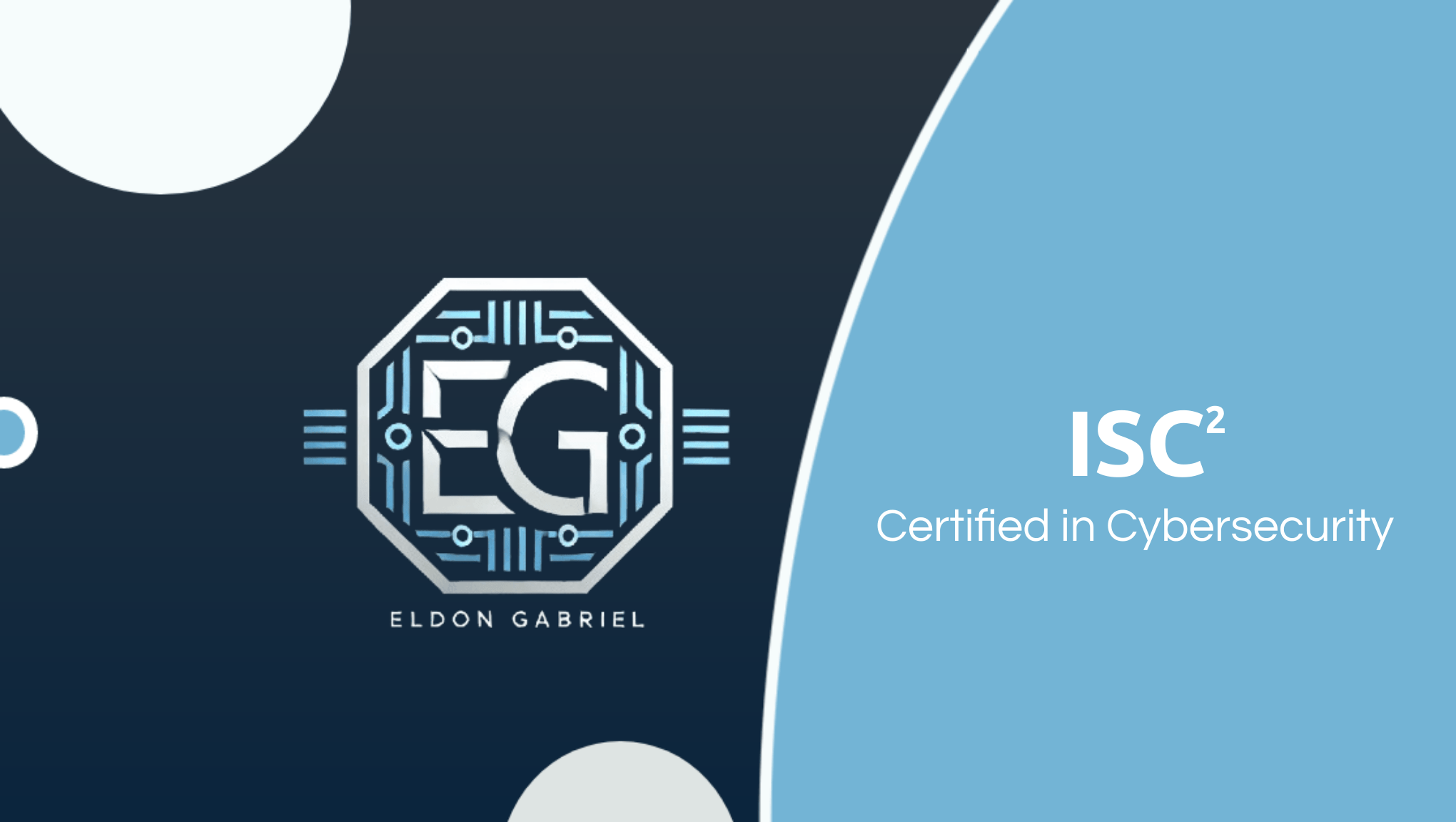
ISC² Certified in Cybersecurity (CC)
The ISC² Certified in Cybersecurity (CC) credential is a globally recognized validation of foundational security principles. This certification demonstrates my commitment to the ISC² Code of Ethics and confirms my proficiency in the core pillars of a professional security program, including risk management, incident response, and logical access control.
Core Capabilities: Security Principles · Access Control · Security Operations
Professional Solutions & Domain Expertise
Through this ISC² certification, I deliver the following standardized security services:
- Strategic Security Principles: Implementing the CIA Triad, risk treatment strategies, and administrative controls aligned with organizational law and policy.
- Access Control Management: Engineering logical access models (RBAC, MAC, DAC) and enforcing the Principle of Least Privilege to

